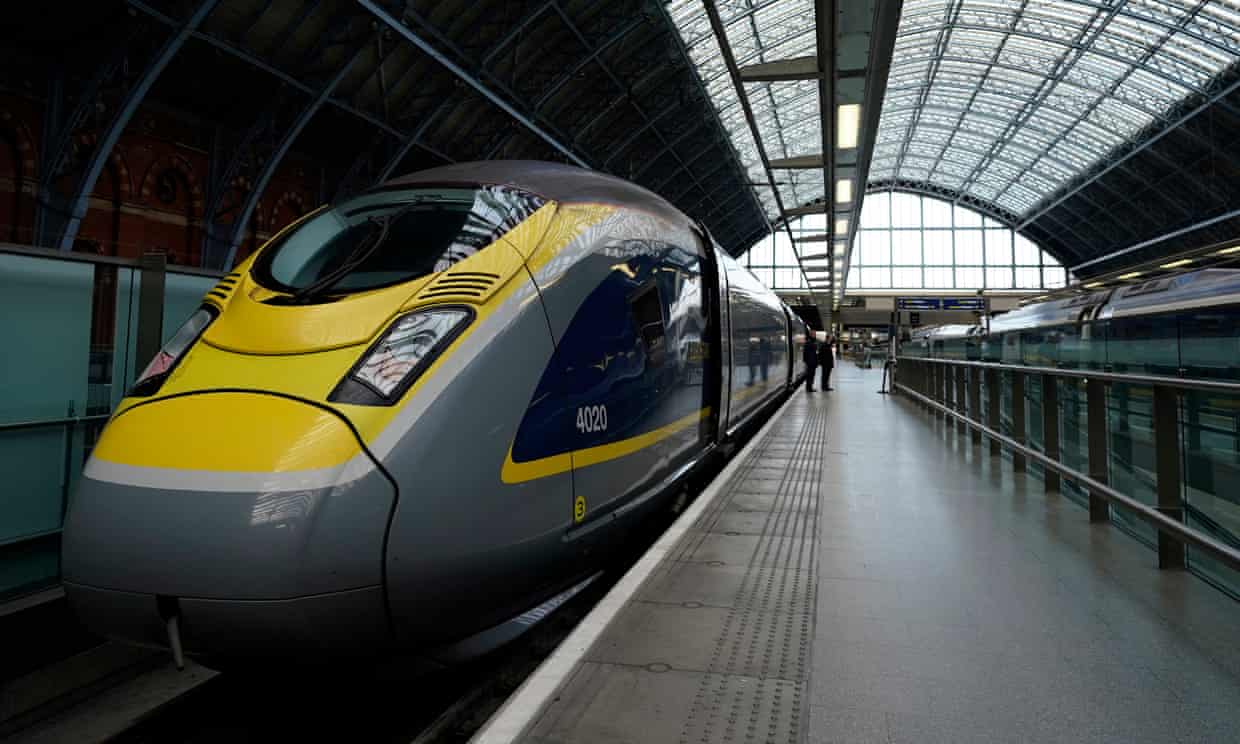
UK news
UK government spent £500,000 on travel to Brexit negotiations
Huge bill on travel to and from Brussels reflects Theresa May’s drawn-out approach to negotiations
by Lisa O'CarrollThe government has spent almost £500,000 on flights and trains to Brussels in the past three years because of Brexit, figures reveal.
This is a fraction of the total £1bn-plus the government is estimated to have spent on the issue, but reflects the cost of Theresa May’s failed approach to Brexit, which caused three years of protracted and fractious negotiations with the EU.
A freedom of information request sent to the recently disbanded Department for Exiting the European Union (DExEU) showed journeys taken between the date of the 2016 EU referendum and 31 December last year cost £464,343.
In 2016, the year David Cameron was trying to secure reforms from the EU, the government spent just £20,000 on trips to Brussels.
In 2017 the figure shot up to £237,305 with almost as much (£207,386) chalked up on flights and Eurostar trips last year by a succession of Brexit secretaries - David Davis, Dominic Raab and Stephen Barclay – and their negotiating teams, including Olly Robbins, David Frost and Eddie Lister.
In total, civil servants and ministers took 2,241 journeys to Brussels and back over the period, averaging £198.43 for a one-way ticket. Eurostar trains made up all of the trips bar 38 flights.
Sam Packer, media campaign manager at the TaxPayers’Alliance, said: “Taxpayers don’t expect their hard-earned cash to be frittered on officials cantering back and forth across the channel.
“Of course occasional travel is necessary,” he said. “But the scale of cost is ridiculous given the number of British officials permanently based in Brussels.”
May’s drawn-out negotiation strategy and the failure to push a deal through parliament in 2017 ensured that DExEU spent more than £200,000 on travel expenses in each of the last two fiscal years.
The department spent more on travel in March 2018 than any other month, coinciding with the first publication of the withdrawal agreement and a scramble to resolve the proposed Irish backstop.
May’s stuttering attempts to conclude a deal included two trips for her and her team in December 2017, when the Democratic Unionist party blew up her proposed pact with the EU, known as the joint report, which committed the UK to a border down the Irish sea.
She was able to sign off on the deal four days later after a dawn flight to Brussels to meet the then European commission president, Jean-Claude Juncker, pledging to the DUP that there would be no border between Northern Ireland and Great Britain.
Almost two full years later, Johnson was accused of reneging on that deal, betraying the DUP and signing up to a border in the Irish sea in a deal sealed with the Irish taoiseach, Leo Varadkar, in a summit in the Wirral in October.
The Institute for Government estimated in 2017 that the total cost of Brexit could reach £2bn. Its figures included the £1.3bn for the six key departments and the the £1.5bn war chest set aside by the chancellor for Brexit preparations in 2018-19.
If all the money was allocated, the total spend leading up to the formal exit could be as high as £2bn, it said at the time.
A cabinet office spokesperson responded to the figures saying: “Due to the nature of DExEU it was necessary for officials to travel to Brussels.”